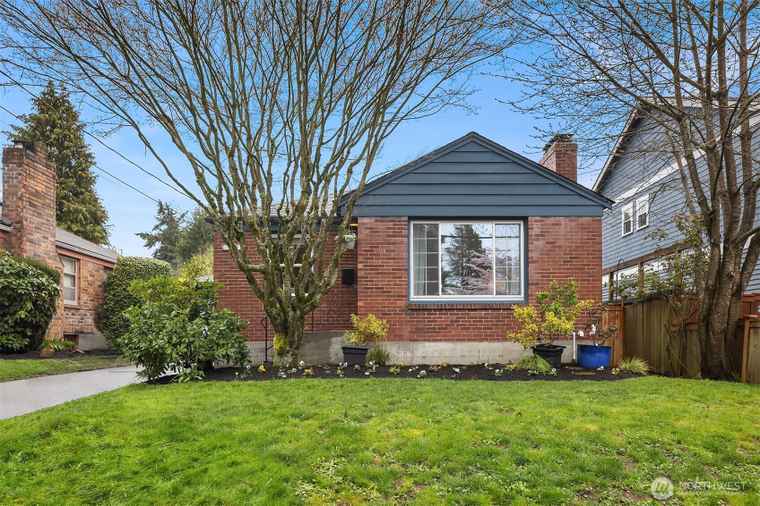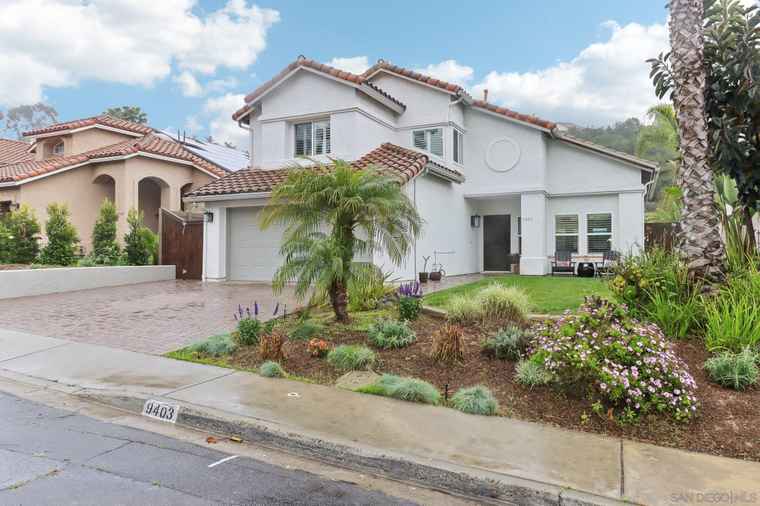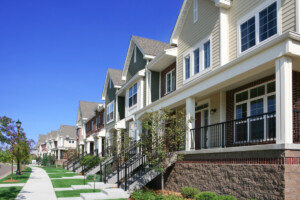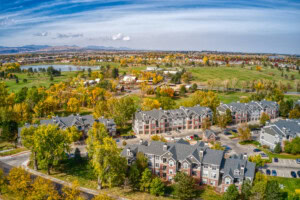- A starter home is the most affordable type of house or living space a first-time buyer can purchase.
- The cost of a starter home varies depending on location, but the median price of a starter home in August 2024 was $250,000.
- What used to be a 3-to-7-year stay in a starter home is now stretching much longer as the market remains competitive and interest rates stay high.
- Deciding whether to keep renting, buy a starter home, or go straight to a forever home depends on your personal financial and life goals.
- While starter homes aren’t as widely available as they once were, they can still be found in certain markets.
If you’re thinking about buying your first place, a starter home is your launchpad into owning real estate. Generally, a starter home is the most affordable type of house a first-time buyer can purchase. Starter homes tend to be a bit smaller in square footage and come with a price tag that’s easier to manage compared to the broader housing market.
The idea of the starter home gained traction after World War II, when a boom in small, affordable homes helped returning soldiers and their growing families transition into homeownership. Owning your own home became part of the idea of the American Dream.
But things have changed quite a bit in the decades since.
Cheap land is harder to come by, and buyer expectations have also evolved. Today, especially in cities and busier suburbs, starter homes might not be quaint single-family houses with a yard. Instead, they might look more like a condo in Miami, FL or a townhouse in Portland, OR. Rising land costs, limited inventory, and changing buyer demographics all influence what qualifies as a starter home today.
“Starter homes aren’t what they used to be,” says Redfin Senior Economist Elijah de la Campa. “A decade ago, a turnkey four-bedroom house in a nice neighborhood was often considered a starter home, but today, a small fixer-upper condo is often all a first-time homebuyer can afford. The American Dream is changing; for many, it no longer involves a house and a white picket fence.”
>> See more: Income Needed to Afford Starter Home Declines
In this article:
What is a starter home?
How much does a starter home cost?
How long should I stay in a starter home?
Starter home vs forever home vs renting
Where can I find affordable starter homes?
Can I afford a starter home?
Is it still possible to buy a starter home?
So, what is a starter home?
Historically, starter homes are houses that are more affordable, making homeownership more accessible if you’re just entering the real estate market as a buyer. Real estate agents often see these houses as something that young professionals can afford within their first few years of working. These homes tend to be smaller in size and might come with some compromises as well, such as being in a less desirable location or fewer upgrades in the home.
A starter home used to imply a house around 1,200 square feet or under, averaging two beds, and one or two baths. Now, a home’s price is likely to define if it is a starter home. What’s considered “entry-level” homeownership can vary widely by region. In high cost of living areas, homes that need TLC often sit at more approachable price points for first-time home buyers than turnkey homes. But with renovation costs on the rise, demand for move-in-ready homes is starting to outpace that of fixer-uppers.
How much does a starter home cost?
Generally speaking, the cost of a starter home is priced below the average home in any given area. According to Redfin data, the median price of a starter home in August 2024 was about $250,000, and the average income needed to afford one was around $77,000. But the national average and the cost of houses for sale in your area can look drastically different. In many places, rising home prices have outpaced income growth, making affordability a big challenge.The overall median home price in the country, for instance, grew from $296,485 in December 2019 to $427,179 in December 2024, a jump of 44%.
High demand from both first-time buyers and investors, combined with a limited number of entry-level properties, has created a tough environment for those trying to buy their first place. In fact, the average age of a first time home buyer in the United States is now 38, a record high and up from 35 the year before.
“While many people make enough on paper to afford a starter home, they often have other expenses like student debt that are preventing them from buying,” says Blakely Minton, a Redfin Premier real estate agent in Philadelphia.
Starter-Home Affordability by Metro: 10 Most Populous Metros (August 2024)
| Metro Area | Income needed to afford median priced home | Median home sale price | Median estimated household income | % of home listings affordable to households earning median estimated income |
| New York City, NY | $162,984 | $460,000 | $96,209 | 1.6% |
| Los Angeles, CA | $201,693 | $610,000 | $93,072 | 0.0% |
| Chicago, IL | $77,238 | $210,000 | $95,385 | 97.9% |
| Houston, TX | $75,919 | $218,990 | $88,638 | 95.0% |
| Phoenix, AZ | $97,143 | $324,940 | $89,287 | 9.0% |
| San Antonio, TX | $70,599 | $201,999 | $79,921 | 86.7% |
| Philadelphia, PA | $44,806 | $140,000 | $72,742 | 96.1% |
| San Diego, CA | $192,207 | $653,000 | $108,206 | 0.1% |
| Dallas, TX | $95,076 | $273,000 | $97,991 | 57.3% |
| Fort Worth, TX | $84,208 | $245,000 | $89,192 | 61.8% |
Source: Income Needed to Afford Starter Home Declines
How long should I stay in a starter home?
How long you actually stay in a starter home often depends on your personal situation. Maybe your family grows, you get a new job that requires a move, or your financial situation changes, allowing you to look for a bigger or more permanent “forever home.”
In the past, many homeowners stayed in their starter homes for around three to seven years building equity. However, it’s now common to see homeowners stay put longer to avoid rising home prices and potentially higher interest rates.
The “lock-in effect” is one major reason people are staying in their homes for longer periods. Current homeowners who “locked-in” low mortgage rates are hesitant to sell and take on a higher mortgage rate, leading to fewer homes available. But the lock-in effect is slowly easing and homeowners are warming up to the idea of moving, slowly adding more homes to the market.
Starter home vs forever home vs renting
So is buying a home better than renting in today’s economy? If you’re thinking about buying a starter home, it’s helpful to compare it to other options like continuing to rent, or jumping straight into a “forever home” to choose the option that works best for your long term goals.
Is renting or buying better long term?
One of the biggest advantages of buying a starter home is that you start building equity, which is like a long-term savings plan. When you pay your mortgage each month, the payments go toward a tangible asset rather than a landlord. Owning a home can also bring more financial stability, especially with a fixed-rate mortgage, as it offers predictable monthly payments, compared to rent, which can rise.
Homeowners might also get some tax breaks for mortgage interest and property taxes, which can save you some money. Beyond the financial aspect, there often comes a feeling of pride and stability that comes with owning your own home.
But buying a starter home also has its downsides compared to renting. The initial costs, like a down payment and closing costs, can be a big hurdle for many first-time homebuyers. Unlike renting, you’re responsible for all maintenance and repair costs, which can be unpredictable and add up. Moving can also be trickier and more expensive when you own, as selling a place takes time and money. And there’s always the risk that your home’s value might not go up as much as you hoped, or it could even go down. It’s also worth noting that these days, in many higher cost of living areas, the monthly cost of buying a starter home can actually be higher than renting a similar place.
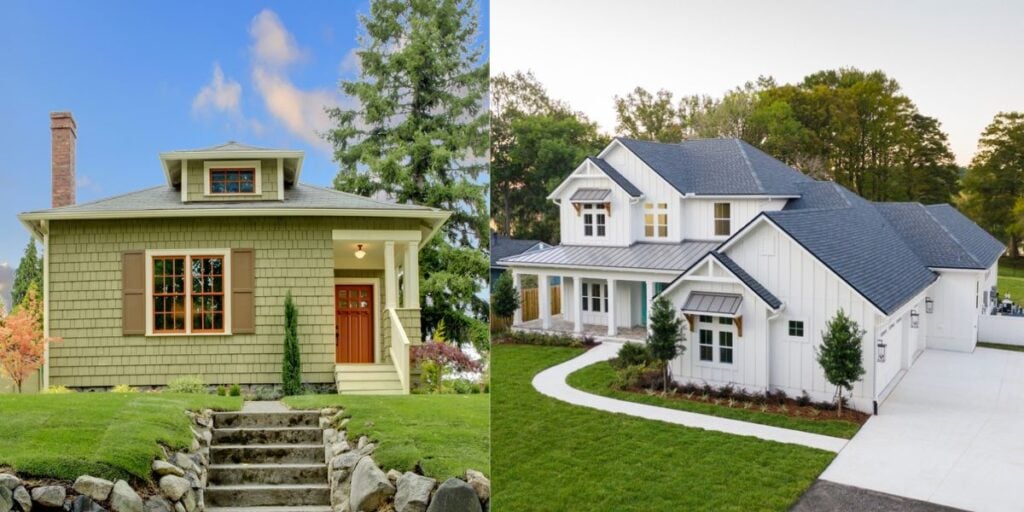
Should I buy a starter home or forever home?
If buying a home is in your plans, an important question is whether you should buy a starter home or go all in on a forever home. A forever home is often seen as enough house for your growing and changing needs—whether that’s starting a family, accommodating aging parents, or having enough space for hobbies and projects. However, a forever home often comes at a higher price, which might not be attainable for first-time home buyers.
One of the biggest advantages of a starter home is that it’s easier on your wallet initially. The price is lower, so you’ll need a smaller down payment and your monthly mortgage payments will be more manageable. This can make homeownership a reality for more people who might not have the savings or income for a bigger, more expensive house. Property taxes and upkeep costs are also usually lower for a smaller home.. Most importantly, a starter home lets you start building equity sooner, which can help you move up to a larger home later.
>> See more: How to Calculate Home Equity
But starter homes have their limitations. They’re often smaller and might not have all the features you want long-term, especially if you plan to have a family or need more space. They might also be in less desirable areas or need some work, which can cost you extra time and money. Since you’ll likely move again, you’ll have to go through the whole buying and selling process again, which can be stressful and expensive. And depending on the market, selling a starter home when you’re ready to upgrade might be tougher than selling a more sought-after “forever home”.
In the long run, while the initial plan might be to move to a bigger place later, some people find that their starter home suits them perfectly and they choose to stay for many years, or even for good. Over time, with some updates, additions, and personal touches, a starter home can become the perfect forever home.
Where can I find affordable starter homes?
If you’re looking for affordable starter homes, there are some key locations to watch. Some areas in the Midwest, for instance, could actually see home prices rise due to more people moving to the Rust Belt.
“Midwest cities have risen in popularity because they’re more affordable than cities in other parts of the country, but many buyers are now widening their search to the suburbs after being priced out of popular urban areas,” says Redfin Chief Economist Daryl Fairweather.
Heading south, Texas and Florida are known for having a decent number of starter homes generally priced below the national average, with home building rates and land availability being key factors. On the East Coast, cities like Harrisburg, PA; Rochester, NY; and Baltimore, MD, are looking promising for first-time buyers because they’re relatively affordable and have job opportunities. The Sun Belt region is also seeing growth, with builders drawn to lower land and labor costs.
>>See more: The 10 Cheapest States to Buy a House in the U.S.
Can I afford a starter home?
There are several financing options to choose from if you’re ready to buy a starter home—but first and foremost, estimate how much house you can afford by using a home affordability calculator.
Then, take a close look at your finances, including income, savings, and expenses, to assess if buying a home fits your budget. Don’t forget to factor in taxes, insurance, and maintenance. Getting pre-approved for a mortgage will help you understand what you can afford. From there, you can consider different loan options for buying your first home, like:
- Conventional loans: May require a larger down payment but could have lower long-term costs for buyers with good credit.
- Government-backed loans: Low or no down payment loans that can be particularly beneficial for starter home buyers.
- FHA loans: Often feature lower down payment and credit score requirements.
- VA loans: May not require a down payment for eligible veterans and active-duty military.
- USDA loans: Designed for purchasing homes in rural areas.
- Down payment and closing cost assistance: Many states and local areas offer programs to help first-time buyers with these initial expenses.
Is it still possible to buy a starter home?
While high demand, limited inventory, rising construction costs, and investor competition have made starter homes harder to find, buying a starter home is still possible—especially with a bit of strategy and flexibility.
One promising trend is the increase in housing inventory, particularly in the entry-level market. More available homes mean more options and, in many areas, less intense competition than in recent years.
Smaller homes and multi-family options like duplexes and townhouses are also gaining popularity as buyers prioritize affordability. Though the path to homeownership may still involve compromise, rising supply and slowing price growth are opening more doors for first-time buyers. Though the housing market is constantly changing, starter homes are still a viable solution to homeownership.


